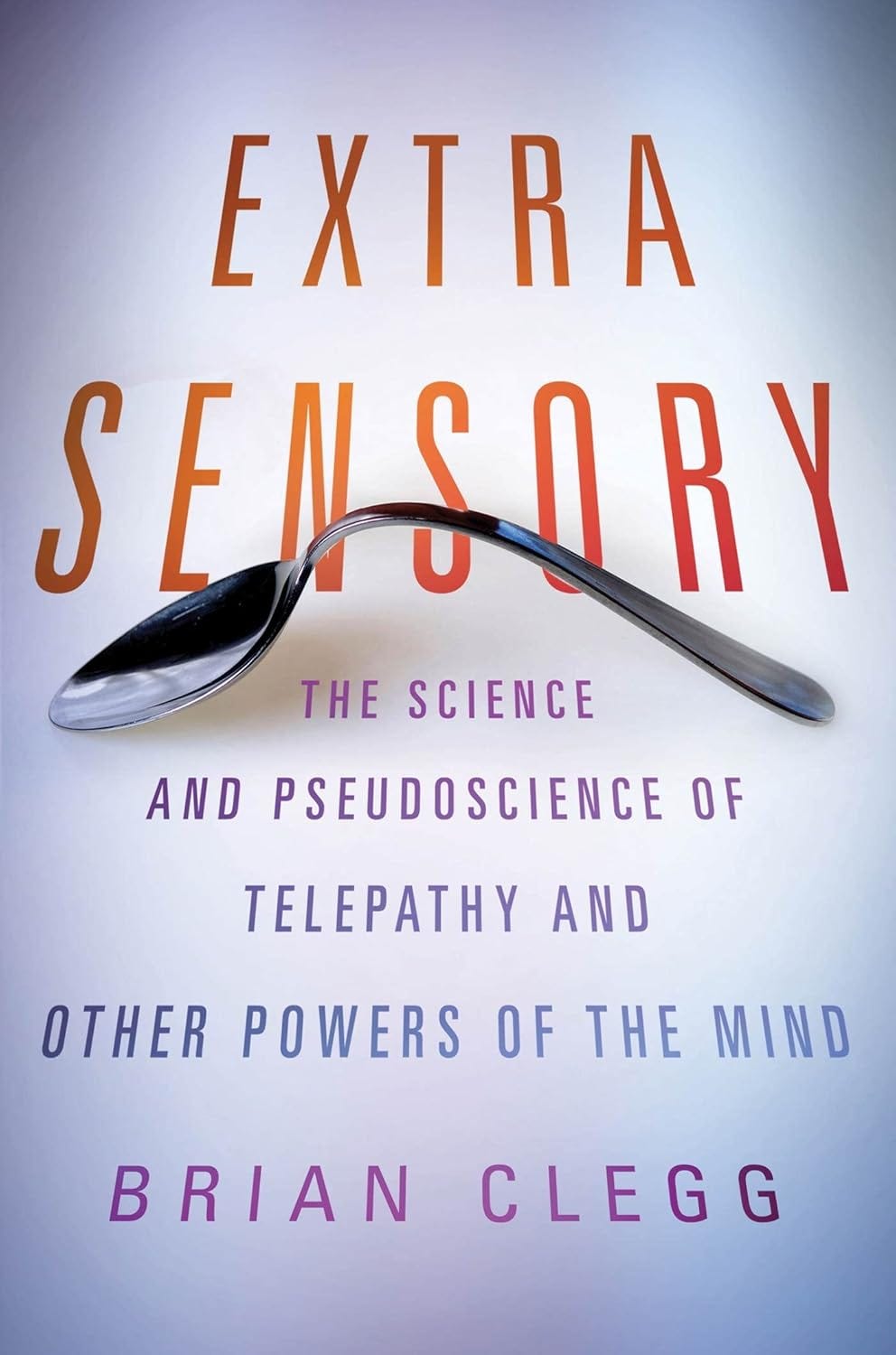2020 Update: so many people have bought this book after reading my review and told me they absolutely loved it, so it’s really worth buying Extra Sensory!
Extra Sensory: The Science and Pseudoscience of Telepathy and Other Powers of the Mind by Wiltshire-based science and sci-fi author Brian Clegg was an absolute joy to read. I was asked to review it and went in cautiously: I was told it took a “balanced skeptical view” of psi phenomena, but I half-expected it to slide into either full-on debunking or wide-eyed credulity. It does neither – and that’s exactly what makes it so valuable.
Rather than lazily dismissing things like ESP, telepathy, remote viewing or telekinesis as impossible, Clegg rolls up his sleeves and digs into the actual evidence and experiments behind the claims. He walks the reader through the history of scientific attempts to test psychic powers – from J. B. Rhine and Ganzfeld experiments through to Abner Shimony and Daryl Bem’s much-discussed work – and looks carefully at what those studies really show (and where they fall down). Along the way he also touches on the role magicians can and do play in testing paranormal claims, and reminds us that humans already have more than five perfectly normal senses without needing to invoke anything supernatural.
What impressed me most is the tone. There are very few books that manage a genuinely balanced, informed and fair-yet-reasoned approach to psi, but Extra Sensory comes very close. Clegg lays out methods, results, and criticisms clearly enough that I often found myself spotting flaws before I reached his analysis. When he concludes that positive results are usually down to poor controls, flexible statistics, or cherry-picking, it feels earned rather than dismissive. At the same time, he’s very clear that past failures aren’t a reason to stop testing these claims altogether – a nuance that many sceptics skip over.
Early in the book, Clegg also explores whether, if abilities like telepathy or remote viewing existed, they might conceivably have roots in quantum mechanics. I’ll admit I initially winced at the word “quantum”, expecting it to be the usual woo-flavoured hand-waving. Instead, Clegg carefully separates genuine physics from the way psychics misuse the term, and makes some thoughtful, grounded points. I finished those chapters feeling better equipped to challenge “quantum” claims, not more irritated by them (even if I did find the physics sections a bit heavy going at times).
I’d recommend Extra Sensory to anyone with a passing interest in telekinesis, ESP, remote viewing, clairvoyance, precognition, psychokinesis and other alleged powers of the mind – especially if you’re familiar with the work of people like James Randi or Derren Brown and want a broader overview of the science around these topics. It doesn’t go into the depth that some specialist texts on individual researchers do, but as an accessible, big-picture guide to a complicated field, it hits a very sweet spot: clear, engaging, and neither vague nor sneering.
In short, it’s a wonderful book that I think will be enjoyed by readers who know either a lot or a little about extra-sensory claims… but you probably knew I was going to say that.
Enjoy this? You can get more articles via my newsletter, The Ghost Geek, or support my work with a one-off tip on Buy Me a Coffee. Purchases made via links in this review may earn me a small commission through Amazon Affiliates at no extra cost to you.




